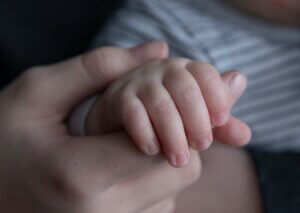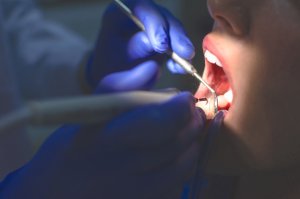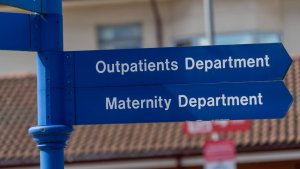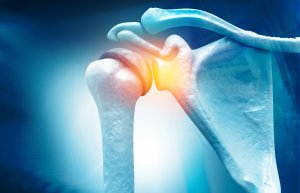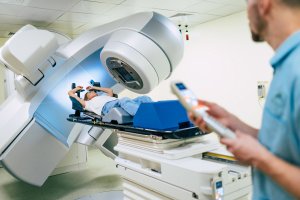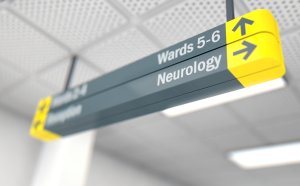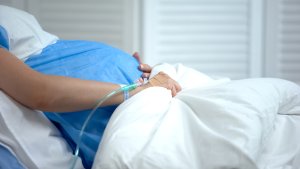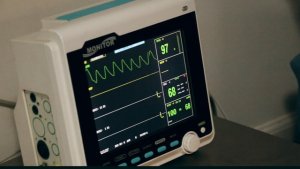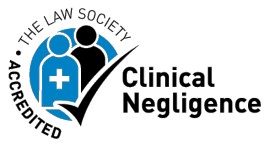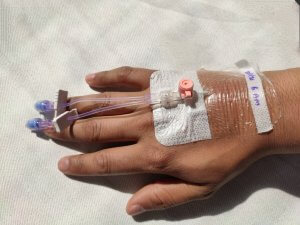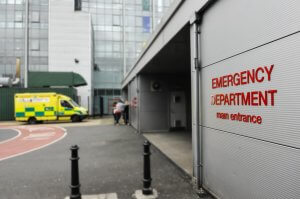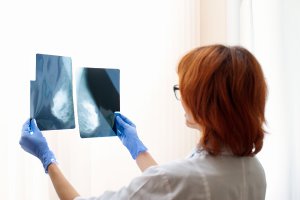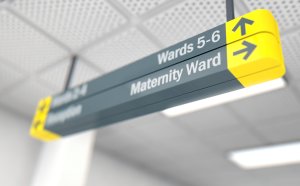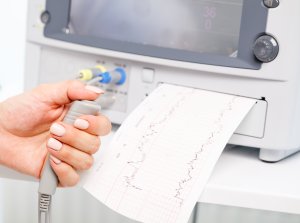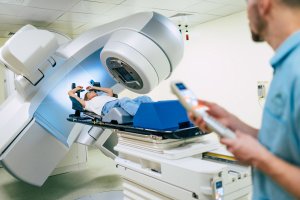Care Home Claims & Nursing Home Accidents
Care Home Medical Negligence Claims
We expect the best possible care for our loved one and sadly this is not always the case. Our lawyers help clients whose family members have suffered medical negligence in a nursing home. Read on for information on the types of accidents we can help with and for more about our expert lawyers.
With an ageing population, more and more of us are being looked after in residential care and nursing homes. But according to a 2012 report by the Care Quality Commission the healthcare needs of society’s most vulnerable group of people are being neglected.
There are over 350,000 elderly people living in 10,000 care homes in England. Every one of them will have particular health issues and will need access to medical and other support, such as mental health, continence and tissue health, physiotherapy, diet and nutrition services. Approximately 40% of care home residents suffer from dementia and the average lifespan from admission is only two years.
So this is a challenging environment, and the provision of services between private and state run care homes and the NHS can be patchy to say the least.
Care homes owe the same duty as a hospital, hotel or any other institution that looks after residents. But they have to do more to meet that duty because of the vulnerability of those they care for and their wide range of needs. If they fail in that duty then serious injury or even death can result.
The following particular issues need to be identified and assessed by all care homes:
Control of Infection
Elderly people in care and nursing homes are particularly vulnerable to infection, which carries with it a high risk of mortality. So the premises and especially the kitchens and bathrooms need to be scrupulously clean. There must be strict hygiene policies in place to deal with food production and infection control. Staff and residents are at risk from waste and blood that is inadequately disposed of, contaminated food and medical equipment, legionella from poorly maintained water and air conditioning systems, and inadequately controlled infection in an individual patient.
Abuse
Sadly there is malpractice in some care homes and the suspicion is that it it more widespread than is acknowledged. Since the Winterbourne View abuse scandal in 2007 there have been a number of prosecutions and reports of abuse, where those employed to look after vulnerable residents have been guilty of neglect and sometimes physical assaults. If a resident is abused in this way then the care home will usually be liable for the actions of their employees. Evidence is key and care home records, witness testimony and video and photographic evidence may all play a part in uncovering the malpractice.
Avoidable Accidents
Elderly residents in care and residential homes can be frail and suffering from illness or disease, so it is no surprise for there to be accidental injuries from trips, slips, falls, and other incidents. Such incidents are very common amongst elderly people who are living at home. But there is a distinction between those accidents on the one hand and avoidable injuries on the other.
For instance, an elderly person at home is very likely to check the temperature of the bath water before getting into it at home. If the job of bathing a vulnerable resident or patient is the responsibility of the care home they should have assessed the risk of burns and scalds and made sure that there are proper safety precautions in place, namely thermostatic mixing valves on the taps and care workers trained to test the water before bathing a patient. There have been several reported cases of patients being seriously injured or even killed by being bathed in scalding hot bath water.
Transfers and equipment
Another common situation involving risk of avoidable injury involves transfers. If a resident or patient is unable to transfer independently, for instance from bed to chair, their needs must be assessed and a proper system put in place. This may be a protocol for two carers to assist or may involve the use of a board or hoist. If the patient is left to their own devices or if the assistance or equipment are inadequate then there is a high risk of injury, and that injury will be caused by a negligent failure on the part of the care home.
Equipment must be properly used and the care providers trained in its safe use. A tragic example of where this can go wrong is the case in September 2012 where an elderly woman was asphyxiated in her bed between her mattress and the incorrectly fitted safety rail. Safety rails are commonplace in care homes to prevent falls, but in this case the staff weren’t properly trained in their use. The care home owners were prosecuted by the HSE and fined £180,000.
Care Home Claims for Patient Falls
Falls in the elderly can be devastating, causing fractures which can lead to impairment and even death. While medical conditions such as confusion or hypoglycaemia can predispose patients to falling, simple precautionary nursing measures can protect vulnerable people from coming to harm through falling. For example, regular monitoring, moving personal items so that they are within easy reach and providing nonslip socks.
Hospital Acquired Infections (HAIs)
HAIs are infections that are picked up while in hospital or in other health care settings such as nursing homes. The worst cases can lead directly to death. Straightforward good nursing practice can reduce the risk of HAIs running rampant and causing harm. Basic hand hygiene, good wound care, sterile techniques and proper cleaning of medical equipment all contribute to safer patient care.
Medication Errors
Medication errors are a significant problem in the NHS. Around 237 million medication errors occur in the NHS in England every year. Of these, avoidable adverse drug reactions contribute to between 2,000 and 22,000 deaths annually. These errors cost the NHS at least £98.5 million each year, although this could be a gross underestimation. Pharmacists, doctors and other health care professionals are all responsible for a wide variety of medication errors.
Nurses are responsible for the majority of medication administrations in a clinical setting. There are lots of reasons why a nurse may cause a medication error: similar drugs names, poor labelling and distraction when giving out medication.
According to the National Diabetes Inpatient audit, ‘2 in every 5 people with diabetes on insulin experience an error related to the administration of the drug while in hospital’.edication errors by nurses can also occur in the community. A study of people who received palliative care at home was published in the Palliative Medicine Journal.1 It was found that of 1072 patient safety reports over a five-year period, 613 were related to medication error. Around two thirds of these incidents caused harm to patients and 129 suffered serious harm, which led to either hospital admission or early death.
Midwifery Errors
Midwives are highly trained nurses who specialise in providing care to pregnant women and their families, throughout pregnancy and labour and for a time after the baby is born. Midwives are rightly proud of their skills and relative autonomy during clinical practice, but sometimes because of this, it takes some time to pick up when a rogue nurse is working.
Nursing Care Home Claims
Like other healthcare professionals, nurses do not go to work to cause harm to the people to whom they are providing care, be it in a birthing suite, a neo natal ward or on the phone to a 999 caller. However, errors do happen and sometimes these errors cause serious harm or even death. If you think that you or a loved one has been the victim of nursing care negligence, then you may be entitled to claim compensation. To find out more, please get in contact with Osbornes Law. We have a team of medical law specialists who will be able to advise you if you have a claim and will guide you through the process.
Our Promise to You
- We will review your potential care home claims by advising you on the NHS complaints procedure or other alternative procedure if your case does not relate to NHS care and treatment.
- Our care home claims solicitors not charge a fee for our time in reviewing your case.
- Our care home claims lawyers can assist you with any issues that you may have regarding the complaints procedure or that you encounter in obtaining copies of your medical records.
- We will advise you of the course of action in respect of your case
Contact our Medical Negligence Solicitors Today
Call us to speak with a lawyer 020 7485 8811
Email us Send us an email and we’ll get back to you
Client StoriesVIEW ALL
- 11.4.2023
Osbornes Instructed After Local Authority Data Breach
Osbornes Law have recently negotiated a settlement on behalf of two clients who had their personal information inadvertently released to...
Read more - 7.3.2023
5-figure settlement for infusion leak to mother
Elline Demetriou has reached another successful outcome for a Claimant, who pursued a post C-section birth injury to mother claim...
Read more - 9.2.2023
Perineal Tear case settles for 6-figure sum
Stephanie Prior recently settled a birth injury claim relating to a woman who delivered her baby after a traumatic labour....
Read more - 23.1.2023
Court avoided after settlement agreed in dental negligence...
The Medical Negligence team have recently negotiated the settlement of a complex dental negligence case. Our client experienced a number...
Read more - 13.1.2023
Delayed cancer diagnosis results in five figure settlement
The medical negligence team at Osbornes Law has recently settled a case involving a patient who passed away following a...
Read more - 14.12.2022
Successful settlement for negligent care during kidney transplant...
Claimant v Royal Free London NHS Trust Osbornes have reached a settlement agreement on behalf of a Claimant who brought...
Read more - 10.11.2022
Successful claim against dental practice after negligent treatment
Osbornes Law have reached another successful outcome for a client, who pursued a claim against dental practitioners due to medical...
Read more - 1.8.2022
Successful settlement for birth injury that led to...
Stephanie Prior’s case relating to the death of Gabriela Pintilie has settled and has been approved by the High...
Read more - 6.7.2022
GP Negligence claim leading to fatality successfully settled
Osbornes acted for a Claimant who brought proceedings on behalf of the estate of her late son, X, relating to...
Read more - 23.5.2022
Justice for client who suffered serious birth injuries
The Clinical Negligence team at Osbornes Law have recently negotiated the settlement of a case in which our client sustained...
Read more - 14.4.2022
Severe abdominal pain prolonged due to failed surgery
Jodi Newton was instructed in a claim against London North West University Healthcare NHS Trust where our client suffered serious...
Read more - 23.3.2022
Nerve injury following bowel surgery
Stephanie Prior was instructed in a claim against Luton & Dunstable University Hospital where our client sustained an injury to...
Read more - 14.2.2022
Recent birth injury cases
Osbornes Law specialises in helping families who have suffered a birth injury. We have represented families who have suffered the...
Read more - 31.1.2022
Recent fatal medical negligence cases
Osbornes Law specialises in helping families who have suffered a fatality due to inadequate medical care. Our specialist team is...
Read more - 31.1.2022
Recent cancer misdiagnosis negligence cases
Osbornes Law specialises in helping families who have suffered due to a delay or missed cancer diagnosis. We represent clients...
Read more - 31.1.2022
Recent Brain Injury Client Stories
Osbornes Law specialises in helping families who have suffered a brain injury as a result of medical negligence. Our specialist...
Read more - 27.1.2022
Recent cerebral palsy cases
Osbornes Law specialises in helping families where a child has been diagnosed with cerebral palsy. We represent clients and families...
Read more - 25.1.2022
Serious Injury Following TVT Surgery
Case Summary Our client, SG, attended her GP in December 2015 complaining of urinary symptoms including leaking when she laughed or...
Read more - 24.1.2022
Likely settlement of £15-20 million for cerebral palsy...
A client who suffered cerebral palsy injuries at birth was awarded £200,000 as an interim payment in a claim against NHS...
Read more - 12.1.2022
Wrongful birth claim successfully settled
Background Our client, J, fell pregnant in October 2015 and took the difficult decision to undergo a termination. She booked an...
Read more - 4.1.2022
Five-figure Compensation for Cardiac Negligence
In this cardiac negligence claim, we were instructed by a 42-year-old Polish man who had attended the Accident and Emergency...
Read more - 4.1.2022
6 Figure Settlement For Heart Attack Claim
In this cardiac claim, we were instructed by the widow of a 55-year-old man, who had complained of chest pain...
Read more - 1.12.2021
Maternity claim for fatality following caesarean section
Stephanie Prior is acting for a gentleman whose wife died after she had a caesarean section. The claim is on...
Read more - 29.10.2021
Medical Negligence Case Study: Iron infusion cannula injury
Nick Leahy, Solicitor in Osbornes Clinical Negligence team recovered damages for his client who suffered an extravasation injury following an...
Read more
“The team is very quick and efficient in responding."
"Obsbornes Law is always client-focused and works tirelessly to obtain the best outcomes for clients."
‘They are ambitious for their clients and expect high standards from all who work with them.’
"Osbornes somehow combine the accessibility of a local firm, with the professional standards of a national or city outfit."
"Osbornes, is described as having ‘superb judgement and a medical knowledge that is second to none."
Stephanie has developed a particularly strong reputation for her handling of birth injury claims, as well as cases concerning surgical negligence and delays in surgery.
"An excellent firm which achieves fantastic outcomes for clients."
"Stephanie Prior takes on complex cases and gets excellent results. She has a background in medicine which serves her clients well and is a realistic but tough litigator."
"Stephanie Prior is hugely dedicated, adored by her clients, tenacious, efficient and extremely knowledgeable."
"Stephanie Prior is very good with troubled clients and is easily able to make them feel at ease."
"Stephanie shows sensitivity and deals with things in an understanding way."
Osbornes provides a very intimate and personal client service which is increasingly rare in this sector.
The lawyers in the team are highly experienced and will drive cases very hard on behalf of their clients.
"Stephanie Prior has a realistic attitude to the complexities of the cases. She wins the trust of her clients and goes the extra mile to ensure they get the best outcomes."
"Stephanie Prior... manages a varied caseload, including obstetric claims, child and adult brain injury cases and fatal and non-fatal spinal cord injury cases."
"Stephanie is experienced, knowledgeable of all aspects of clinical negligence work, and strategic in running cases."
"An exceptional outfit. They take on difficult cases, fight hard and win."
"The team were extremely professional in putting my needs first. There was a joined-up approach to catering for the client, and all lawyers involved were briefed and constructive."
Stephanie Prior is always very professional and kind. Highly recommended.
Quite simply excellent, with a highly competent and well-rounded team. They understand complex medical litigation and have been our lifesavers, and we will always owe them our immense gratitude.
Contact our Medical Negligence Lawyers Today
Call us to speak with a lawyer 020 7485 8811
Email us Send us an email and we’ll get back to you
Medical Negligence News & InsightsVIEW ALL
- 9.6.2023
Early Notification Scheme – is it helping or failing...
What is the Early Notification Scheme? The NHS Early Notification Scheme (“ENS”) has reached its sixth anniversary. Established in April 2017,...
Read more - 5.6.2023
Are pharmacy closures putting patients at risk?
It has been reported in the press that chemist closures will have an impact on patients living in deprived or...
Read more - 23.3.2023
Private Pregnancy Scans and Substandard Care
In the news, it has been reported that private clinics that offer pregnancy scans to women are not meeting the...
Read more - 14.2.2023
The risk of extravasation injuries during iron infusion...
Many patients with low iron, particularly during pregnancy or postnatally, may be advised they need an iron infusion such as...
Read more - 9.11.2022
Transfer time from ambulance to A&E causing...
The Healthcare Safety Investigation Branch (HSIB) have identified that patients may come into risk of harm whilst waiting in ambulances...
Read more - 9.11.2022
Breast cancer screening mammograms and negligence
Breast cancer screening has improved significantly in the UK due to research bettering the understanding of this terrible disease, which...
Read more - 28.9.2022
Women more likely to have symptoms ignored by...
An increasing number of women in the UK feel brushed off by GPs when presenting with real symptoms, with many...
Read more - 21.9.2022
Are maternity services safe? – Part 2
In April last year I wrote a piece about government setting up a taskforce to look into why there are...
Read more - 8.9.2022
Poor interpretation of CTG can result in stillbirth...
Poor interpretation of a Cardiotocograph, more commonly known as a CTG, is a leading cause of stillbirth and brain injuries...
Read more - 9.8.2022
New interactive rating tool reveals NHS wait times...
Amidst record-breaking heatwaves and a lengthy patient waiting list due to COVID backlogs, it is not surprising that this summer...
Read more - 14.7.2022
Insulin overdose in hospitals due to limited staff...
A century ago, insulin was first used to treat a 14-year-old boy dying of type 1 diabetes A hundred years later,...
Read more - 6.7.2022
NHS aims to reduce waiting times with Elective...
The NHS recently recorded their waiting list to be at 6.5 million, a record high. Much of this backlog is due...
Read more - 29.6.2022
Nottingham Maternity: Donna Ockenden to Chair Independent Inquiry
An interim report on the state of maternity services at Nottingham University Hospitals NHS Trust has just been released. However,...
Read more - 28.4.2022
Calls for Public Inquiry into Vaginal Mesh Surgery
A leading professor from the University of Oxford has called for a public inquiry into the use of vaginal mesh...
Read more - 11.4.2022
Late Cancer Diagnosis Crisis Within NHS
The Health and Social Care Committee recently released a 52-page report on cancer services, expanding on the crisis in England (...
Read more - 6.4.2022
Stephanie Prior Comments on the Ockenden ‘Maternity Scandal’...
Following the publication of the Ockenden Report, an independent review of maternity services at Shrewsbury and Telford Hospital NHS Trust,...
Read more - 5.4.2022
NHS Gynaecology waiting lists rise due to coronavirus
It has been reported today in the press that as a consequence of the coronavirus pandemic, gynaecology waiting lists in...
Read more - 23.2.2022
Record high waiting lists put cancer patient lives...
In early January 2022 there were nearly six million people in England waiting for routine operations and treatment: a record high....
Read more - 23.2.2022
Women from ethnic minorities experience worse maternity care
It has been reported today that the government has set up a new task force to look into why there...
Read more - 17.2.2022
999 Call Handlers Maternity Instructions Report
HSIB Report on Maternity Pre-arrival Instructions from 999 Call Handlers The Healthcare Safety Investigation Branch (“HSIB”) investigate NHS maternity incidents that...
Read more - 18.1.2022
Basildon hospital maternity unit still needs improvements
A Channel 4 News investigation into the maternity scandal at Basildon Hospital, which is part of the Mid & South Essex...
Read more - 13.1.2022
Court of Appeal Judgement on Secondary Victim Cases
Judgment was today handed down by the Court of Appeal in the cases of Paul v Royal Wolverhampton NHS Foundation...
Read more - 15.12.2021
Vaccine Related Blood Clots And Delays in Diagnosis
Deep Vein Thrombosis, Pulmonary Embolism and Vaccine Induced Blood Clots The worldwide COVID-19 immunisation programme has been in full swing...
Read more - 23.11.2021
Longer wait for ambulances endangering lives
According to recent NHS figures, in October this year patients in England who were presenting with potential heart attacks or...
Read more




